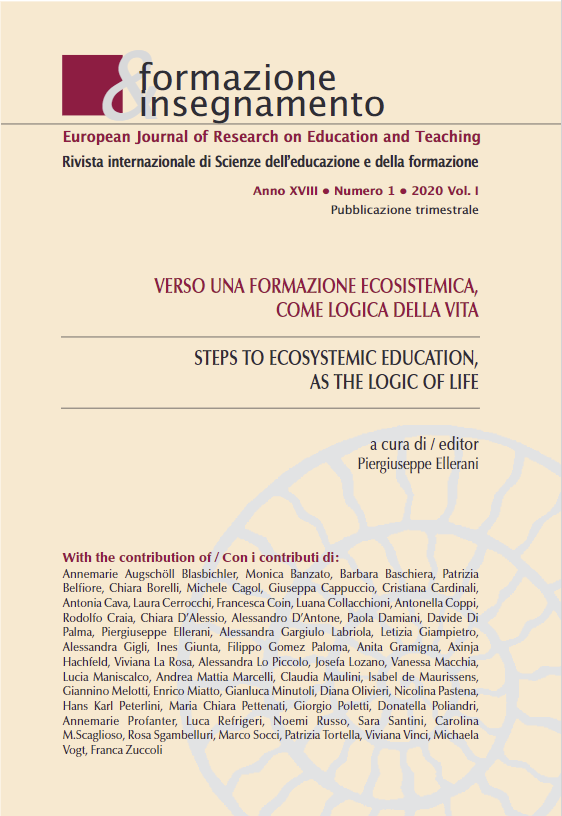Eudemonia and lifelong learning for global citizenship education
DOI:
https://doi.org/10.7346/-fei-XVIII-01-20_04Abstract
Acting together on issues of common interest is, according to numerous studies, the most "inclusive" ingredient to promote the well-being of individuals, acting as a stimulus to the development of social capital: through cooperation and the achievement of common goals, that create links in terms of culture and good living, (Bruner, 2000) the philosophical approach of Eudaimonic well-being takes definitive shape. In this perspective the activities are congruent with the values deeply rooted in society, lived in close connection and holistically (Bauer, J. J., McAdams, D. P., & Pals, J. L. (2008). A complex and interdependent society where we are immersed, places citizens in a position to face ever-changing challenges in relation to knowledge, skills, values and attitudes that foster a sustainable, fair and inclusive world. The promotion of inclusive and global education becomes functional to the achievement of the ECG's objectives, aimed at preparing and triggering in the individual and society the cultural changes leading to the creation of a fairer, more equitable and sustainable society. The perspective offered by the encounter with artistic knowledge creates a social interstice, a place of human relations that suggests possibilities of exchange different from those present in the system in which we live, opening the person to new knowledge, skills and abilities that can generate human and social capital, in the awareness that contexts and ways of life and relationships are a means of well-being [...] throughout life.
Downloads
Published
How to Cite
Issue
Section
License
Copyright (c) 2020 FORMAZIONE & INSEGNAMENTO. European Journal of Research on Education and Teaching

This work is licensed under a Creative Commons Attribution 4.0 International License.
Formazione & insegnamento is distributed under Attribution 4.0 International (CC BY 4.0).
For further details, please refer to our Repository & Archiving Policy, as well as our Copyright & Licensing Terms.





